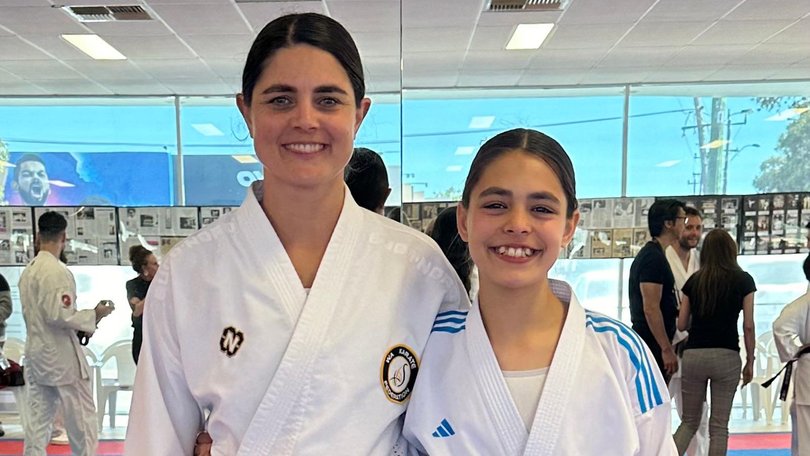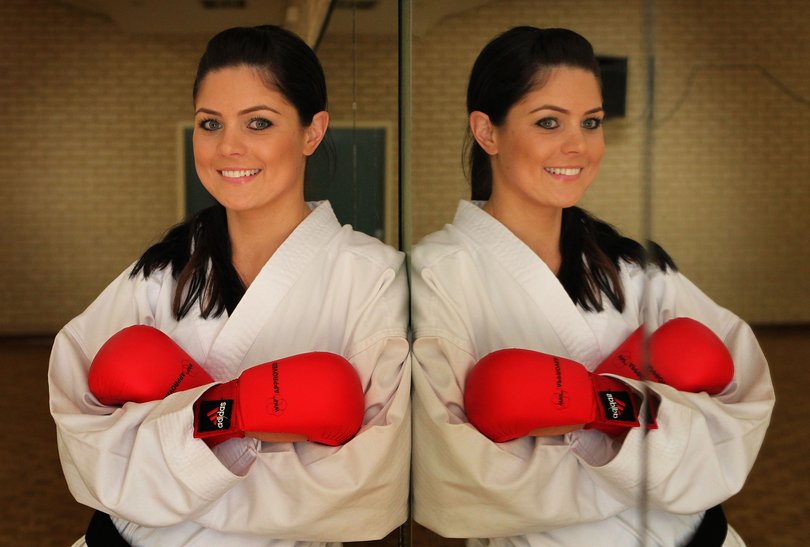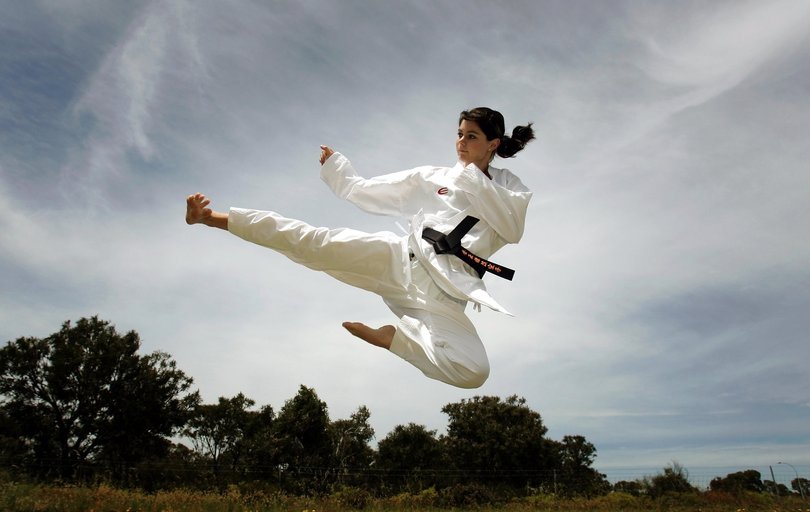Mitchell Johnson: Brisbane 2032 must resurrect karate if the Olympic Games are to stand by their ideals

Recently, my 12-year-old daughter looked at my wife and I and asked us if we think karate will be in the Brisbane Olympics in 2032.
Rubika competes in kumite, the fighting component of karate. She trains hard. Competes with pride. She’s done the maths and knows that if karate makes it to Brisbane 2032, she’d be 19 — prime age to chase the Olympic dream that her mother, former karate world championships bronze medallist and winner of 17 national titles Jess Bratich Johnson, never got the chance to.
But that dream is still just a “maybe”. And I saw it in her eyes — that little spark of hope that her sport might finally be seen as Olympic-worthy.
Sign up to The Nightly's newsletters.
Get the first look at the digital newspaper, curated daily stories and breaking headlines delivered to your inbox.
By continuing you agree to our Terms and Privacy Policy.That hope is why this matters. It could also sway her into taking on karate as her main sport, as she has other interests.
Karate finally got its moment at Tokyo 2021, at the birthplace of the sport. For the millions around the world who train in it, compete in it and live by its values, it was a long-overdue spotlight.
And then just like that — it was gone again. Not included in Paris 2024. Now, the fight is on to get karate back for Brisbane. And frankly, it deserves more than a cameo. It deserves a permanent place at the Olympics.
Why? Because karate reflects everything the Olympics claims to represent: discipline, respect, tradition, global reach and the pursuit of excellence. Yet, despite being practised by millions in over 190 countries, karate continues to be overlooked.
I still find it strange. With so many people training in karate — from little kids in local halls to elite athletes on international mats — you’d expect it to have a bigger profile.
Karate today, especially in kumite and kata, has evolved into a highly dynamic and competitive discipline. Big leagues in Europe, world-class athletes from all over the globe, including Oceania — there’s a deep pool of talent. A hunger. A thriving culture. What’s missing is the stage and the financial support.
Here in Australia, karate survives largely on passion, not funding. The athletes don’t do it for money or fame.They do it because they love it. But love alone doesn’t build high-performance programs. It doesn’t pay for international competition. And it doesn’t create the visibility that helps young athletes dream bigger.
When certain sports walk away from the likes of Gina Rinehart’s sponsorships, I remember thinking karate would be the kind of sport that would truly appreciate that level of backing. Not out of desperation, but because it’s a sport that’s still building. Still fighting for recognition. And with proper investment, it could become something Australia is proud to stand behind.
And what better time than Brisbane 2032? This isn’t just about medals. It’s about meaning. Karate gives young people something few sports can: a deep sense of self-respect, focus, emotional control and cultural appreciation. It’s not just about who can punch fastest or score the most ippon (although that is part of it) — it’s about who can carry themselves with honour before, during and after the match.

I’ve seen how much it gives my daughter. The way she walks taller after training. The way she bows before stepping on the mat. The way she handles pressure — calm, calculated, composed.
And I know she’s not alone. Across the country, kids are training in silence, learning discipline through kata and control through kumite. They’re not just learning to fight. They’re learning to grow. Young girls and boys come in shy and nervous, but they grow and become confident and disciplined.
Karate should never have to beg for a seat at the Olympic table. It’s a sport built on thousands of years of tradition, with a modern competitive scene that is fast, technical, and global. The argument that it’s “too similar” to other combat sports doesn’t hold. By that logic, freestyle and butterfly swimming shouldn’t coexist. BMX and track cycling should cancel each other out. Each has its rhythm, its own culture, its own story. Karate is no different.
The Olympics are meant to evolve to include the sports that shape cultures and communities around the world. Karate isn’t a trend. It’s embedded in the lives of millions. It’s part of schools, families, and neighbourhoods. And it has the power to connect us, especially in multicultural countries like ours.

Let Brisbane be the Games that gives karate its rightful place — not just because it fits the host nation’s identity, but because it represents something we should all value: honour, discipline, and legacy.
I saw that recently at the nationals in Adelaide — athletes of all ages from all over the country competing with passion. Western Australia sent a team of over 100 athletes, competing in kumite, kata, or both. They finished second overall in the national medal count — a huge result and one that speaks to the resilience and rising standard of karate in WA.
But behind the medals was something even more powerful — a community effort. Volunteers, referees, coaches, and families all played their part, and that’s what karate is. A sport built on shared values.
So to the decision makers, the sporting bodies, and the International Olympic Committee — don’t let another generation of karate kids grow up like Jess did — believing their sport wasn’t seen, valued, or supported on the world’s biggest stage.
Karate doesn’t just belong in the Olympics. The Olympics needs karate — now more than ever.
